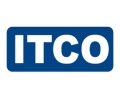

TG-08 provides guidance to ITCO members for the purpose of supporting:
Environmental processes that enhance the tank container industry’s cradle-to-grave-to-cradle sustainability;
Awareness of the tank container as the superior transport mode providing environmental performance.
Intermodal tank containers are widely recognised as a safe and reliable means of global transport of liquids and liquified gases in bulk. The tank container is also an environmentally sustainable mode of transport. A core environmental advantage of the tank container is that it is manufactured from sustainable materials, designed for continued re-use over a period of 20 years or more; and, in due course, it is proven to be suited to repurposing and recycling.
Low carbon footprint transportation is achieved by the tank container because it is dimensionally compatible with standard shipping containers, which ensures that the tank container benefits from the efficiencies of global intermodal containerisation.
The tank container operates in a business world where beneficial cargo owners (BCOs – the producers of chemicals and liquid foods and drinks) are increasingly active in their obligations to implement environmental initiatives throughout the transport chain. The tank container is the transport mode that is uniquely positioned to fulfil eco-friendly and safe use objectives.
Whereas the tank container is superior to other transport package modes, it is necessary for industry to build on this leading position and strive to achieve ever higher standards by continuing to invest in innovative technology and processes.
This document provides sustainability guidance to ITCO members from procurement to safe end-of-life repurposing and eventual recycling.
Source: ITCO